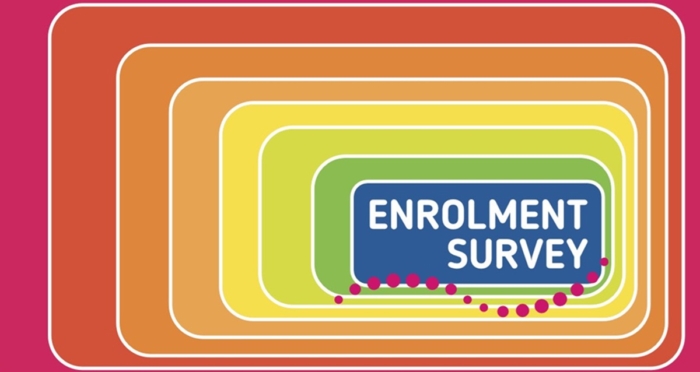Within the EPC family, our members have continued to face enormous challenges and the EPC offers thoughtful leadership and representation to ensure we can best support our members in meeting these challenges. Alongside events and blogs, members can access the EPC’s online bank of best practice resources such as out toolkits and our data explorer. Click on each of the tabs below to see some of our highlights:
We are excited to inform you that we are starting work on our Sustainability Toolkit, to be launched around the beginning of 2024. We are grateful to receive support and funding from Siemens and The Royal Academy of Engineering on this project.
There is an urgent need to increase sustainability awareness and skills. This is especially important for Engineering education so that all new graduates are motivated and equipped to tackle the serious sustainability challenges facing the environment and society.
To achieve this the Engineering Professors’ Council (EPC) is developing a toolkit for UK Engineering academics to ensure that sustainability is essential to and fully integrated within the learning of Engineering students. The toolkit will be open source and in time it will be connected with similar projects to create a global resource for Engineering educators.
While many excellent resources explain the sustainability knowledge, skills, and mindsets essential for 21st-century engineers, very few resources exist that support engineering educators to integrate these into their teaching in a comprehensive and effective way.
The aim of this project is to develop and curate a toolkit of resources that help academics explicitly embed sustainability in their day-to-day practice of engineering teaching, and to help make sustainability integral to rather than tangential to engineering learning.
Work has already begun and we are making progress with guidance from our Sustainability Toolkit Steering Group. The steering group is composed of academic, industry, and advocacy leaders who are passionate about sustainability and it will help guide the development of outputs such as those created for the EPC’s Engineering Ethics Toolkit. It will work alongside our project partners, including the Royal Academy of Engineering, Siemens, and the Lemelson Foundation which has supported work on a similar initiative in the US. The project will run from February through December 2023.
We will update you on the progress and look forward to launching the toolkit in 2024.
The EPC was delighted to announce the official third phase of our Engineering Ethics Toolkit in February 2023. This growing resource is being developed by the EPC with the generosity and support of the Royal Academy of Engineering, as part of the profession’s on-going work to embed ethical practice into the culture of engineering.
The EPC’s 2021-2023 President Prof. Mike Sutcliffe wrote a short blog to welcome you to this ambitious new initiative to ensure engineering education is a force for good, which you can read here.
The first and second phases in the development of the ethics toolkit involved the creation and publication of a range of case studies and guidance articles to help engineering educators integrate ethics content into their teaching.
The launch of our case studies and guidance articles, and the importance of these resources and embedding ethics into engineering education was reiterated by Prof. David Bogle just before our toolkit was live at the launch of the 2022 “Engineering Ethics: maintaining society’s trust in the engineering profession” report from the joint Engineering Council / RAEng, Engineering Ethics Reference Group. Our case studies come under the Education and Training actions of this report, which aim to support and improve how ethics is understood by those in the engineering profession.
2023 has seen the development of activity enhancements for nine of our case studies, as well as the publication of thirteen new case studies and eight new guidance articles, bringing our total up to 25 case studies, nine enhancements, and twelve guidance articles.
In addition, we have updated the static ethics curriculum map into the interactive Ethics Explorer, which helps educators to get started on or develop their ethics journey, meeting them where they are at any stage of experience, and helping them to understand, plan for and implement ethics learning.
This new content was launched in a well-attended webinar in March this year.
March 2023 also saw the launch of Ethics Ambassadors – a new community of practice created to champion the Toolkit and support educators embedding ethics into engineering.
We are currently working on further projects to enhance and promote the Engineering Ethics Toolkit, including:
- A search tool that will be able to provide ethics results specifically tailored to a user’s needs;
- A call for further toolkit contributions in the form of blogs, guidance, case studies and enhancements;
- Rolling out an Educators’ Pack to all universities;
- Launching a competition and awards for educators using the toolkit;
- Creating further webinars, workshops and other events.
These will all be rolled out by the end of 2023.
The EPC’s Research, Innovation and Knowledge Transfer (RIKT) Committee put out a call in July 2021 for members to submit academia-industry partnership case studies. By the end of the call, nearly 50 applications were received and a sub-group of the RIKT Committee shortlisted 25 of these to be presented at an online launch webinar for the Crucible Project on the 16th February 2022. Over 120 attendees joined us for this online event which saw a huge range of case studies outlining innovative and engaging collaborations between academia and industry, as well as a guest lecture by Prof. John Patsavellas (Cranfield University).
Subsequent to this, the Crucible Project Toolkit was launched on the EPC website in April 2022 to showcase the case studies presented at the event but also many more – access to these individual case studies is an exclusive EPC member benefit. The RIKT Committee envisions this toolkit as a living and growing resource to help EPC members to find research funding, place graduates in employment, create work-based learning opportunities and so on. Next steps for the Crucible Project Toolkit include a system to allow members to contribute their own, or further case studies to ensure that this resource continually grows.
As part of the development of EPC Online we have created the Data Explorer feature – this members-only resource presents data visualisations specially designed to help EPC members explore a wealth of engineering sector datasets and to show data customised to the interest of Engineering academics in any discipline. The data is arranged according to population:
- Applications and admissions;
- Student enrolments;
- Student completion and;
- Academic staff
These sections each contain a variety of questions that can be explored through interactive charts and tables. Additionally, members are able to download the dataset can be downloaded to allow sorting and presenting in ways that will be most helpful to them.




